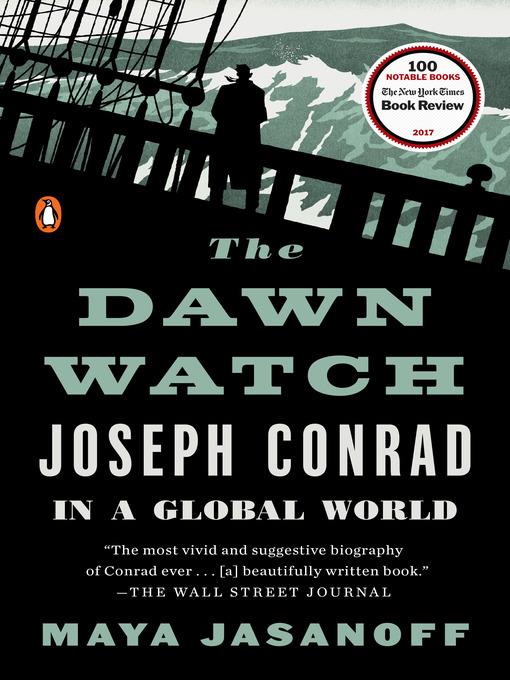
The Dawn Watch
Joseph Conrad in a Global World
کتاب های مرتبط
- اطلاعات
- نقد و بررسی
- دیدگاه کاربران
نقد و بررسی

June 1, 2017
Harvard historian and multiaward winner Jasanoff argues that, with his parents dead after forced relocations for his father's revolutionary activities and his own sojourns worldwide as a sailor showing him both the oppression wrought by imperialism and the swift changes wrought by technological advances, Joseph Conrad speaks to the turmoil of our day.
Copyright 2017 Library Journal, LLC Used with permission.

September 1, 2017
An absorbing biography melds history and literary analysis.Jasanoff (History/Harvard Univ.; Liberty's Exiles: American Loyalists in the Revolutionary World, 2011, etc.), who has won the National Book Critics Circle Award for Nonfiction and the George Washington Book Prize, asserts that the novels of Joseph Conrad (1857-1924) "meditate on how to behave in a globalizing world," where characters "confront some critical choice, only to face consequences more far-ranging than they ever imagined." Drawing on Conrad's many works of fiction, memoir, letters, and essays, Jasanoff focuses especially on his most famous novels--The Secret Agent, Lord Jim, Heart of Darkness, and Nostromo--to reveal how he responded to a roiling age plagued by anarchy, revolution, and oppression. His characters "struggle with displacement, alienation, and despair," caused by both external and internal forces. Conrad, Jasanoff reveals, was "perpetually depressed, incorrigibly cynical, alarmingly prejudiced" against Asians and Jews, and beset by childhood experiences that inspired his "fatalistic sense of the world as a realm where, no matter how hard you tried to make your own way, you might never slip the tracks of destiny." As a teenager, he set out alone from his native Poland, then under Russian domination, determined to become a seaman; in 1878, he arrived in cosmopolitan London and began a career in the merchant marine, rising to the rank of captain over the next 20 years. Travels throughout the world fueled his imagination. During voyages to Asia, he "stowed away landscapes, characters, and plots" that inspired "half of everything Conrad ever published." In rich detail, Jasanoff skillfully contextualizes his work within "a chain of historical events" that led to profound social and political change. Heart of Darkness, for example, was "closely pegged" to King Leopold II's ruthless exploitation of the Congo. Jasanoff focuses less on Conrad's family life (his wife and sons are lightly sketched) than on the prescient "global compass" of his literary works. An insightful perspective on Conrad's life and turbulent times.
COPYRIGHT(2017) Kirkus Reviews, ALL RIGHTS RESERVED.

June 26, 2017
Harvard historian Jasanoff (Liberty’s Exiles) undertakes a review of Joseph Conrad’s life and work that broadens into an acute, original study of 19th-century European imperialism and an emergent globalized world. Polish-born Conrad (1857–1924) was an accomplished seaman before he turned to writing, having learned English as an adult and picked up on the craft of fiction in part from reading Charles Dickens. He became one of England’s most celebrated authors and prose stylists. Jasanoff’s vivid descriptions of Conrad’s travels enrich this narrative. From the extraction of ivory to the impact of rubber demand, she describes the dreadful Belgian colonial trade that Conrad knew firsthand, having worked briefly on a Congo riverboat, a job that he detested and in which he encountered a “European regime of appalling greed, violence, and hypocrisy” that informed his novels. But Jasanoff’s more anachronistic language, such as a description of her subject as “a dead white man” who was “alarmingly prejudiced” by contemporary standards, gives the impression that she is judging him by today’s very different moral standards. Despite this, Jasanoff’s skillfully written book makes a persuasive case that Conrad was “one of us: a citizen of a global world.” Agent: Andrew Wylie, the Wylie Agency.

























دیدگاه کاربران